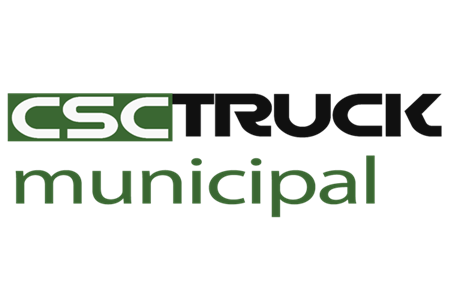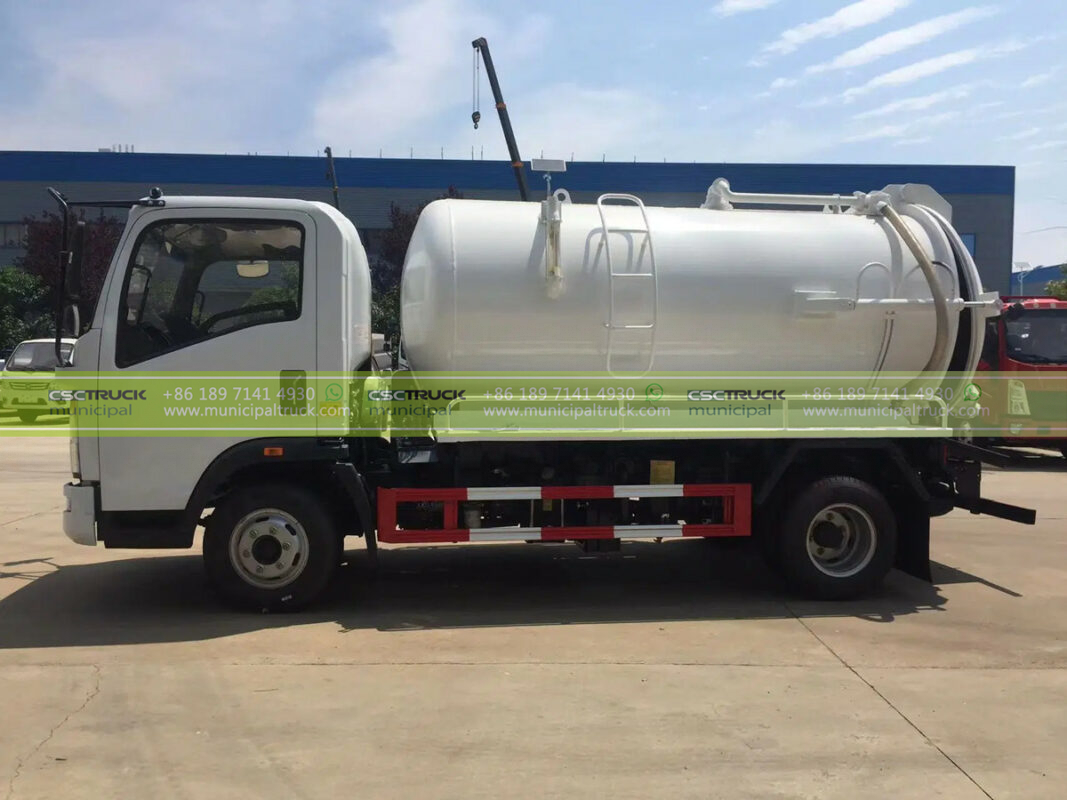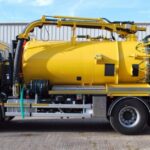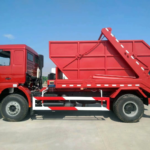In the ever-evolving landscape of urban infrastructure and waste management, sewage trucks have emerged as indispensable vehicles that ensure the safe and efficient transport of liquid waste from various sources, including residential, commercial, and industrial facilities. This guide delves into the intricate details of sewage trucks, exploring their design, functionality, operational features, and the pivotal role they play in maintaining public health and environmental standards.
Understanding Sewage Trucks
Definition and Purpose
Sewage truck, also known as vacuum truck or sewage vacuum tanker, are specialized vehicles designed specifically for the collection, transport, and disposal of sewage and other liquid waste materials. These trucks are equipped with advanced vacuum systems that allow for the efficient removal of waste from septic tanks, sewage treatment facilities, and other containment systems, playing a crucial role in effective waste management.
Key Components of Sewage Trucks
The core components of sewage trucks include a robust chassis, a vacuum tank for waste collection, a powerful vacuum pump, and a reliable discharge system. Each of these components is meticulously designed to work in unison, ensuring that sewage is handled safely and efficiently throughout the collection and transport process.
Design Features of Sewage Trucks
1. Specialized Vacuum Tank
Material Composition
The vacuum tank is the heart of a sewage truck, and its design is critical for effective waste management. Typically constructed from high-grade stainless steel or aluminum, the tank is designed to resist corrosion and withstand the harsh chemicals often found in sewage. This durable construction not only extends the lifespan of the tank but also ensures that it remains intact and leak-proof during operations.
Tank Capacity
Sewage trucks come in various sizes, with tank capacities ranging from 1,000 to over 3,500 gallons, depending on the specific requirements of the waste management operation. Larger tanks allow for extended collection periods without frequent emptying, making them ideal for high-demand areas such as urban centers or industrial facilities.
2. Advanced Vacuum System
High-Performance Vacuum Pumps
Equipped with powerful vacuum pumps, sewage trucks are capable of generating strong suction forces that can effectively lift liquid waste from various sources, including septic tanks and drain fields. The performance of these pumps is vital, as they must overcome the viscosity and density of sewage to ensure efficient loading.
Filtration Systems
To protect the vacuum pump from contaminants, sewage trucks often feature advanced filtration systems that prevent solids and debris from entering the pump. These systems are designed to filter out unwanted materials, ensuring the longevity and efficiency of the vacuum system. Regular maintenance of these filters is essential for optimal truck performance.
3. Discharge System
Efficient Waste Disposal
Once the sewage is collected, it must be safely discharged at a designated treatment facility or disposal site. Sewage trucks are typically equipped with a powerful discharge system that utilizes pumps to empty the tank quickly and efficiently. This discharge process is often controlled via a valve system that allows operators to manage the flow of waste during unloading.
Compliance with Regulations
The discharge system must also adhere to local environmental regulations to prevent contamination of water sources and surrounding areas. Many sewage trucks are equipped with features that ensure compliance, such as anti-spill mechanisms and monitoring systems that track the discharge process.
Operational Features of Sewage Trucks
1. User-Friendly Controls
Ergonomic Operator Interface
Modern sewage trucks are designed with user-friendly controls that enable operators to manage various functions with ease. Ergonomic layouts and intuitive interfaces allow drivers to control the vacuum system, monitor tank levels, and manage the discharge process efficiently, reducing the learning curve for new operators and enhancing overall operational safety.
Remote Monitoring Capabilities
In recent years, the integration of remote monitoring systems has revolutionized sewage truck operations. These systems allow operators to track key performance indicators such as tank capacity, vacuum pressure, and pump status in real-time, enabling proactive decision-making and maintenance planning.
2. Versatile Applications
Residential Waste Collection
Sewage trucks are widely used for the collection of residential sewage, particularly in areas where traditional sewer systems are not available. These trucks provide essential services for septic tank maintenance, ensuring that waste is removed regularly to prevent overflows and environmental contamination.
Commercial and Industrial Use
In addition to residential applications, sewage trucks play a critical role in commercial and industrial waste management. Businesses such as restaurants, manufacturing facilities, and processing plants often produce liquid waste that must be managed effectively. Sewage trucks provide a reliable solution for transporting this waste to treatment facilities.
3. Enhanced Safety Features
Spill Prevention Systems
Given the hazardous nature of sewage, safety is a top priority in sewage truck design. Many models are equipped with spill prevention systems that minimize the risk of leaks during transport and discharge. These systems often include containment trays and anti-siphon devices that prevent spills from contaminating surrounding areas.
Emergency Shutdown Mechanisms
Sewage trucks are typically equipped with emergency shutdown mechanisms that allow operators to halt all operations in the event of a malfunction or safety concern. This feature is critical for preventing accidents and protecting the safety of both operators and the public.
The Role of Sewage Trucks in Environmental Protection
1. Preventing Contamination
Sewage trucks are instrumental in preventing environmental contamination by ensuring that liquid waste is collected and transported safely. By removing sewage from residential and industrial sites, these trucks help to mitigate the risk of spills and overflows that can pollute soil and water sources.
2. Supporting Wastewater Treatment Facilities
By facilitating the efficient transport of sewage to treatment facilities, sewage trucks play a vital role in the wastewater treatment process. These trucks ensure that sewage is processed in a timely manner, allowing treatment plants to operate efficiently and effectively. The removal of sewage from residential and industrial sources helps to maintain public health and environmental standards.
3. Promoting Sustainable Practices
Sewage trucks contribute to sustainable waste management practices by ensuring that liquid waste is disposed of responsibly. By adhering to local regulations and utilizing modern technologies, sewage trucks help to reduce the environmental impact of waste disposal activities. This commitment to sustainability is increasingly important in a world that is becoming more aware of the need to protect natural resources.
Technological Innovations in Sewage Truck Design
1. Automation and Smart Technologies
The integration of automation and smart technologies in sewage trucks has transformed the waste management industry. Advanced sensors and data analytics are now being employed to optimize routes, monitor tank levels, and track operational performance. These innovations enable waste management companies to enhance efficiency, reduce costs, and improve service delivery.
2. Hybrid and Electric Models
As environmental concerns continue to gain traction, the demand for hybrid and electric sewage trucks is on the rise. These vehicles utilize alternative fuel sources to reduce greenhouse gas emissions and reliance on fossil fuels, aligning with global efforts to promote sustainability in transportation. The development of hybrid and electric sewage trucks represents a significant step forward in the quest for greener waste management solutions.
3. Enhanced Data Collection and Analysis
With the advent of the Internet of Things (IoT), sewage trucks can now collect and transmit real-time data regarding their operations. This data can be analyzed to identify trends, optimize performance, and enhance decision-making processes within waste management organizations. By leveraging this technology, companies can improve their service offerings and respond more effectively to customer needs.
Maintenance and Care for Sewage Trucks
1. Regular Inspections
To ensure optimal performance, sewage trucks must undergo regular inspections to assess the condition of key components, including the vacuum system, tank integrity, and discharge mechanisms. Routine maintenance helps to identify potential issues before they escalate, minimizing downtime and ensuring the truck operates safely and efficiently.
2. Cleaning and Decontamination
After each use, sewage trucks should be thoroughly cleaned and decontaminated to prevent the buildup of harmful pathogens and odors. This process typically involves rinsing the tank, inspecting filtration systems, and sanitizing the vacuum pump. Regular cleaning not only ensures compliance with health regulations but also extends the lifespan of the truck.
3. Training for Operators
Proper training for sewage truck operators is essential for ensuring safe and effective operations. Training programs should cover the handling of hazardous materials, operation of vacuum systems, and emergency response protocols. Well-trained operators are better equipped to manage the challenges associated with sewage collection and transport, ultimately enhancing safety and efficiency.
Economic Considerations
1. Cost of Ownership
Investing in sewage trucks can represent a significant financial commitment for waste management companies. The cost of ownership includes not only the initial purchase price but also ongoing expenses related to maintenance, fuel, insurance, and training. By carefully evaluating these costs and implementing effective operational strategies, companies can maximize their return on investment and maintain profitability.
2. Revenue Generation
Sewage trucks can serve as a lucrative asset for waste management companies, generating revenue through the provision of essential services to residential, commercial, and industrial clients. By establishing contracts for regular sewage collection and disposal, companies can create a steady stream of income that supports their operations and growth.
3. Government Incentives
As the importance of sustainable waste management practices continues to grow, many governments are offering incentives for companies that invest in eco-friendly technologies, including hybrid and electric sewage trucks. These incentives may come in the form of tax credits, grants, or reduced licensing fees, making it more financially viable for companies to transition to greener alternatives.
.jpg)
Future Trends in Sewage Truck Technology
1. Increased Emphasis on Sustainability
As environmental awareness continues to rise, the future of sewage trucks will likely be shaped by an increased emphasis on sustainability. Manufacturers are expected to focus on developing trucks that minimize their environmental impact, including the use of eco-friendly materials, efficient fuel sources, and innovative waste management technologies.
2. Advanced Automation and AI Integration
The ongoing advancement of automation and artificial intelligence (AI) is set to revolutionize the sewage truck industry further. Future models may feature sophisticated algorithms that optimize collection routes based on real-time traffic and weather conditions, reducing fuel consumption and improving service.
Innovations in Sewage Treatment Integration
1. Seamless Coordination with Treatment Facilities
One of the most promising developments in sewage truck technology is the ability to establish seamless communication with sewage treatment facilities. By integrating real-time data transfer systems, sewage trucks can notify treatment plants of incoming waste, allowing for better preparation and resource allocation. This coordination ensures that facilities are ready to process waste efficiently, reducing bottlenecks and improving overall throughput.
2. Predictive Maintenance Systems
Another exciting trend is the use of predictive maintenance systems that leverage data analytics and machine learning. By continuously monitoring the performance of various truck components, these systems can predict potential failures before they occur, allowing for proactive maintenance interventions. This capability not only reduces downtime but also extends the operational lifespan of sewage trucks, maximizing their value for waste management companies.
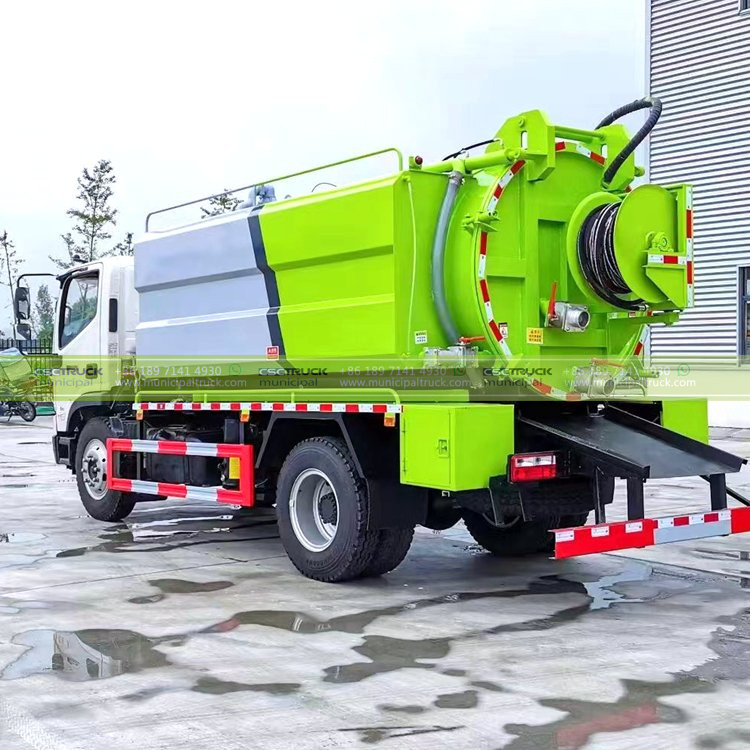
Training and Education in Sewage Truck Operations
1. Comprehensive Operator Training Programs
As sewage truck technology evolves, the training programs for operators must also adapt. Comprehensive training that covers both traditional operational techniques and new technological advancements is essential for ensuring that operators are well-equipped to manage modern sewage trucks. This training should include hands-on practice with advanced controls, safety protocols, and emergency procedures, fostering a culture of safety and efficiency.
2. Ongoing Professional Development
In addition to initial training, ongoing professional development opportunities are crucial for keeping operators informed about the latest industry practices and technological innovations. Workshops, seminars, and certifications can help operators stay up-to-date with best practices, enabling them to enhance their skills and contribute to more effective waste management operations.
The Importance of Regulatory Compliance
1. Adhering to Local and National Standards
Compliance with local and national regulations is a critical aspect of sewage truck operations. These regulations often dictate how waste should be collected, transported, and disposed of, as well as safety measures that must be implemented. Companies must stay informed about changes in legislation to ensure that their operations remain compliant and avoid potential penalties.
2. Environmental Regulations and Best Practices
In addition to safety regulations, sewage trucks must also adhere to environmental standards designed to protect natural resources. This includes proper waste disposal methods, spill prevention measures, and strategies for minimizing odors and emissions. By implementing best practices and ensuring compliance with environmental regulations, sewage truck operators can help safeguard public health and preserve the environment.
The Impact of Community Engagement
1. Building Public Trust
Engaging with the community is essential for fostering trust and transparency in waste management operations. Sewage truck operators can benefit from open communication with residents, providing information about services, addressing concerns, and promoting awareness of the importance of proper sewage management. This engagement can lead to greater public support for waste management initiatives and improved community relations.
2. Educational Outreach Programs
Implementing educational outreach programs can also be effective in promoting understanding of sewage management processes. By informing the public about how sewage trucks operate and their role in maintaining sanitation, communities can develop a greater appreciation for the importance of these vehicles. Educational initiatives can also encourage residents to participate in responsible waste disposal practices.
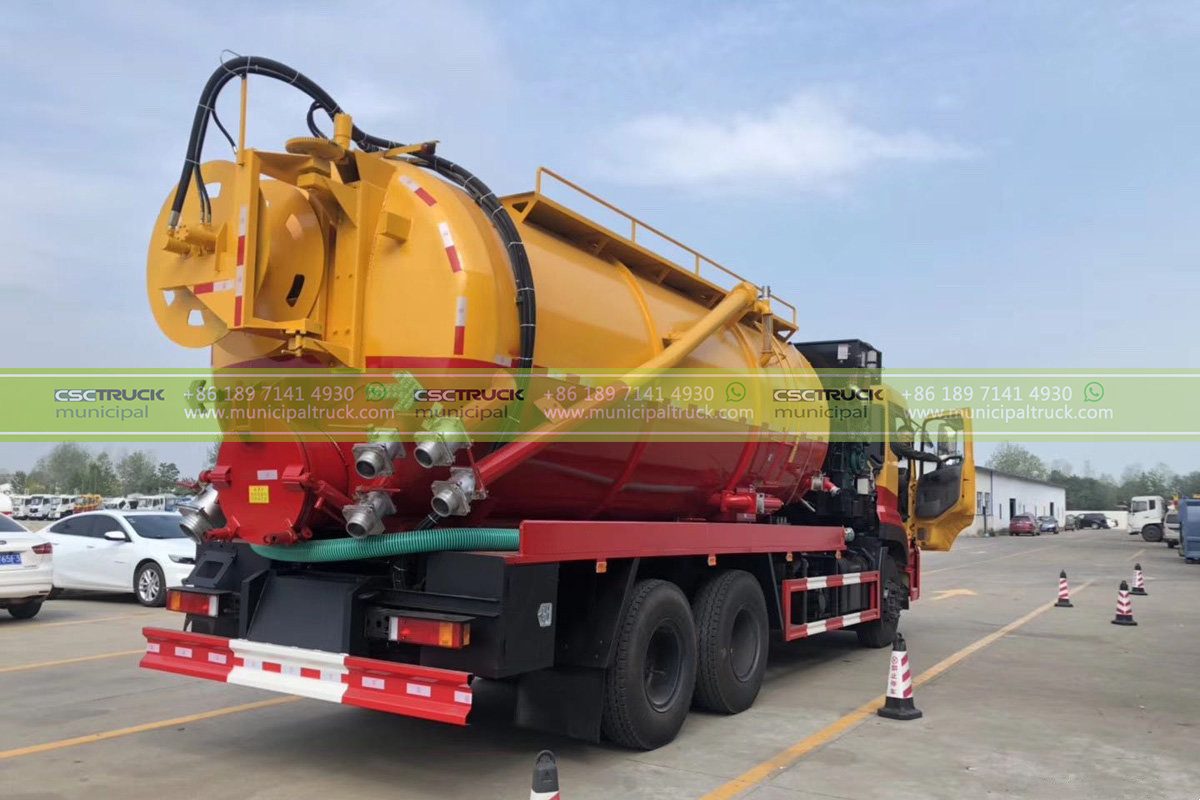
Future Challenges for Sewage Truck Operators
1. Addressing Increasing Urbanization
As urban areas continue to expand, sewage truck operators will face new challenges related to increasing population density and the subsequent rise in sewage generation. Adapting operations to effectively manage this growing demand will require innovative solutions, including optimizing collection routes and investing in additional equipment.
2. Navigating Technological Advancements
While technological advancements offer numerous benefits, they also pose challenges for sewage truck operators who must keep pace with rapid changes. Investing in new technologies and training staff to operate and maintain these systems can be both time-consuming and costly. Companies must strategically plan for technology adoption to maximize benefits while minimizing disruptions to operations.
Global Perspectives on Sewage Management
1. Variations in Infrastructure
Sewage management practices vary significantly around the world, influenced by local infrastructure, regulations, and environmental conditions. In some regions, well-established sewer systems allow for efficient waste transport, while in others, the reliance on sewage trucks remains high due to inadequate infrastructure. Understanding these global differences is essential for companies operating in multiple markets.
2. Collaborative Solutions
Addressing sewage management challenges often requires collaborative efforts among governments, private companies, and communities. Shared knowledge and resources can lead to innovative solutions that improve sewage collection and treatment processes globally. By fostering partnerships, stakeholders can work together to develop sustainable practices and enhance waste management systems.
Conclusion
In the evolving landscape of waste management, sewage trucks are vital for ensuring public health and environmental protection. As technological advancements continue to shape the industry, these vehicles will play an even more critical role in the efficient transport and treatment of sewage. Through ongoing training, community engagement, and a commitment to regulatory compliance, sewage truck operators can navigate the complexities of modern waste management, paving the way for a cleaner and safer future.
